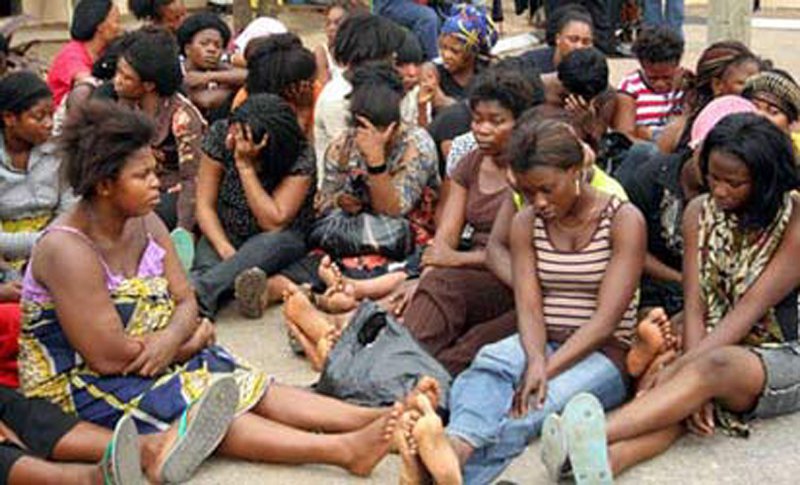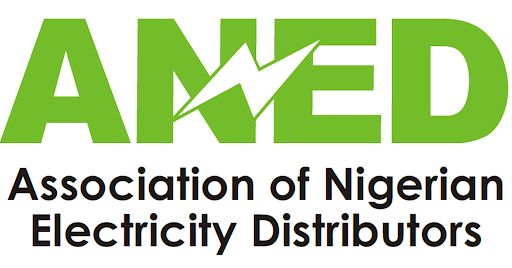
The House of Representatives Wednesday, decried the increasing number of Nigerian women trafficked to neighbouring African countries as sex slaves, putting the figure at 30,000.
Besides the number in Africa, the House said several others were scattered around the world in the unholy act.
To this end, the House urged personnel of the Nigerian Immigration Service, NIS at the ports and borders of Nigeria to permit officials of National Agency for the Prohibition of Trafficking in Persons, NAPTIP, to operate, spot, identify and prevent the illicit emigration of potential victims to foreign lands.
The resolution was sequel to a motion moved by Rimamnde Shawulu Kwewum from Adamawa State (PDP) and seven others at yesterday’s plenary.
Busted: Police invade baby factory, rescues 25 children, 6 pregnant women
Relying on the statistics by NAPTIP, Kwewum, who noted that the number was alarming, said:
“The House notes that at present, there are several tens of thousands of Nigerian women who have been turned into sex slaves around the world.
”Reports in the media show that Nigerian women and even underage girls, have been turned into sex slaves in European and several Middle East countries:
“The House is concerned that even neighbouring West African states which depend on Nigeria for their well being and security, have become notorious in maltreating Nigerian women, keeping them as sex slaves and providing safe haven for perpetrators of human trafficking.
“It is aware that the National Agency for the Prohibition of Trafficking in Persons, NAPTIP, has conducted several investigations and discovered that between 20,000 and 30,000 Nigerian girls are sex slaves, with 50 additional girls being added to the list every day.
“Because of increased efforts of security agencies, traffickers no longer accompany their victims to Mali but now “waybill” the girls through Cotonou. Many of the victims were deceived by friends and relatives to leave Nigeria for greener pastures (mostly domestic work, hair dressing or sales) in Malaysia only to discover later that they are being used for sex trade.
“Nigerian girls are trafficked mainly to the mining areas in the South and Central part of Mali, but a substantial number are trafficked to rebel held areas in the North of Mali, where they stand the risk of being radicalized;
“Some of the victims were taken away from Nigeria, some in school uniforms and are being treated like slaves and less than second class citizens by Malians and their law enforcement agencies collect taxes from the Nigerian women on a weekly basis and force them to use condoms;
“Nigerian women are forced by their ‘Madams’ to sleep with numerous men, without using any protection, hence the high incidence of sexually transmitted diseases and other ailments.
“The border point between Nigeria and Benin Republic at Seme-Krake is notoriously porous and in spite of numerous reports and pictures of notorious trafficking sent to Nigerian security agencies at the border, no action has been taken to curb the practice.
“The Nigerian Ambassador to Burkina Faso, Ramatu Ahmed, alerted that no fewer than 10,000 Nigerian women, mainly under-aged girls, are forced into prostitution in Ouagadougou and other mining camps across West Africa.”
He said the House was “worried that the continuation of this activity dents the image of the country and provides room for other West African countries to disrespect, not just Nigerian women, but all Nigerians.”
He informed the House that in 2020 alone, 15 young Nigerian women were killed in Mali to instill fear in the other women who might have the intention of escaping.
Adopting the motion, the House urged NAPTIP to begin to shame the traffickers in their homes, including widespread publication of the names and pictures of convicted traffickers. It also mandated the Committee on Human Rights to conduct investigation into all aspects of sex slavery and recommend appropriate budgeting and legislative measures, including sanctions and cooperation with fellow African countries, to stem the tide.

